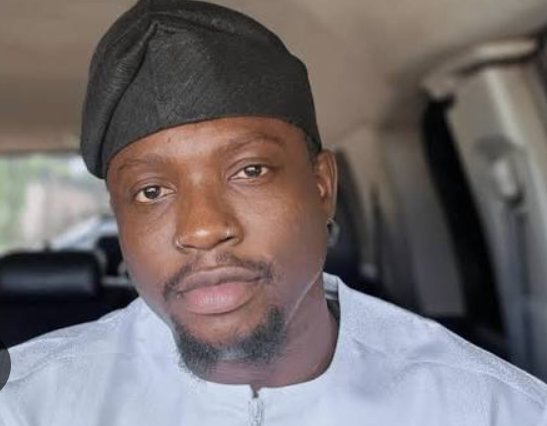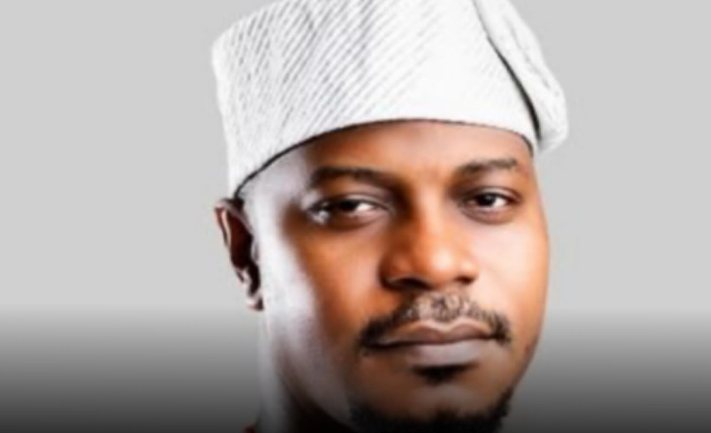
BRING BACK OUR CHILDREN NOW: VDM LEADS FRESH ABUJA PROTEST OVER KEBBI SCHOOL KIDNAPPINGS

Abuja witnessed another wave of public outrage on Wednesday as activist VeryDarkMan (VDM) and a group of concerned Nigerians stormed the streets of the Federal Capital Territory, demanding swift and decisive action from President Bola Ahmed Tinubu following the abduction of students in Kebbi State. The protest, which began at the Unity Fountain and moved through major streets in the city centre, drew attention from passersby, security personnel, and media houses who captured the growing frustration of citizens tired of the unending cycle of mass kidnappings across the country. For many of the protesters, the message was simple and urgent: Bring back our children… now.
Chanting loudly and carrying placards with inscriptions like “Tinubu, Act Now!”, “Our Children Are Not Bargaining Chips!”, “Save Kebbi Students!”, and “Enough is Enough,” the demonstrators expressed heartbreak and anger over what they described as the government’s slow and ineffective response to the crisis. VDM, known for his fearless social commentary, stood at the forefront of the protest, his voice echoing through a megaphone as he demanded that the federal government take immediate steps to rescue the schoolgirls whose abduction has plunged dozens of families into despair. His presence alone was enough to electrify the atmosphere, drawing more Abuja residents into the crowd as the march intensified.
Speaking during the protest, VDM questioned how many more young Nigerians must be kidnapped, abused, or killed before authorities wake up to their responsibilities. He criticized the culture of reactive governance, where leaders respond only after public pressure mounts, arguing that children in a learning environment should never be left so vulnerable in the first place. According to him, the abduction of schoolchildren in Kebbi State is not an isolated incident but part of a long, worsening pattern that has shattered confidence in the nation’s security structure. He called on the President to “treat this as a national emergency, not another news headline.”
Families of the abducted students, though not physically present in Abuja, were represented by relatives and sympathizers who shared heartbreaking accounts of sleepless nights, trauma, and fading hope. One protester narrated how parents in Kebbi have spent days begging for any information—any sign—that their daughters are safe. Another tearfully questioned how Nigerian leaders sleep at night knowing that innocent schoolchildren are held hostage in the forests, with no food, no medicine, and no sense of when or if they will ever return home. These sentiments amplified the urgency in the air, and every chant of “Bring Back Our Children!” carried the weight of real human suffering.
Security officers monitored the demonstration, ensuring it remained peaceful, though tensions briefly rose when protesters attempted to move toward a restricted part of the city. Still, VDM urged everyone to remain calm, emphasizing that the fight was not against the police but against negligence and insecurity. His restraint kept the protest organized and focused, and his words continued to resonate: “We are here because these children matter. We are here because tomorrow it could be your child.”
Many Nigerians online also lent their voices to the movement, with hashtags related to the protest trending across social media platforms. Videos of VDM addressing the crowd quickly went viral, sparking nationwide conversations about the fate of the kidnapped students and the need for the Tinubu administration to deliver results, not promises. Analysts say public pressure may force quicker government action, especially given rising dissatisfaction with the current security situation. For a nation still reeling from years of insurgency, banditry, and mass abductions, every new attack feels like reopening a wound that never properly healed.
Beyond the emotional outpouring, several protesters questioned the effectiveness of the government’s current strategy for dealing with kidnappings. Some accused leaders of giving vague assurances without concrete timelines, while others highlighted the inconsistency in how authorities respond to crises depending on the region or the affected families. One activist argued that Nigeria’s security agencies need more intelligence-driven operations, better funding, and freedom from political interference. Another insisted that the government must stop treating kidnappers with kid gloves and adopt tougher measures to dismantle their networks. But despite their different suggestions, everyone agreed on one thing: the students must be rescued without delay.
The Kebbi kidnapping has once again spotlighted the vulnerability of schools in northern Nigeria, particularly in rural areas where security forces are stretched thin. While the government has repeatedly promised to secure educational institutions, the frequency of such abductions suggests that much more needs to be done. Children who should be dreaming about their future are instead living in fear of classrooms becoming danger zones. For parents, sending their children to school now feels like a gamble between education and safety. And for the nation, it raises disturbing questions about what kind of future is being built if even school walls cannot guarantee protection.
As the protest continued, VDM made it clear that this was not a one-off demonstration. He vowed to mobilize more Nigerians if the government failed to act swiftly. He reminded the crowd that democracy gives citizens the right to demand accountability and that silence only enables bad governance. “We cannot get used to this,” he said. “We cannot normalize wickedness. We cannot fold our arms and pretend everything is fine. These children must come home, and they must come home alive.”
By midday, the protest had swelled, drawing even more concerned citizens into the fold. Some brought water, others brought drums, and a few even brought printed photos of the kidnapped students. The atmosphere was a mix of anger, sadness, and determination—a collective cry for justice. One woman, holding a placard that read, “If they were politicians’ children, they would be home by now,” captured a sentiment shared by many: the painful belief that ordinary Nigerians are often left to fend for themselves.
As the crowd dispersed later in the afternoon, the message echoed loudly through Abuja’s streets: the people are watching, and they are demanding action—not speeches. Whether the protest will trigger significant government response remains to be seen, but one thing is undeniable: VDM and the protesters have rekindled a national conversation that Nigeria cannot afford to ignore.
For now, parents in Kebbi continue to wait. Protesters in Abuja continue to speak. And the nation continues to hope that the kidnapped students will return safely, sooner rather than later.
VeryDarkman and some other people staged protest in Abuja, urging President Tinubu to bring back k!dn@pped students in Kebbi State. pic.twitter.com/cjdV57Gvvs
— CHUKS 🍥 (@ChuksEricE) November 19, 2025


